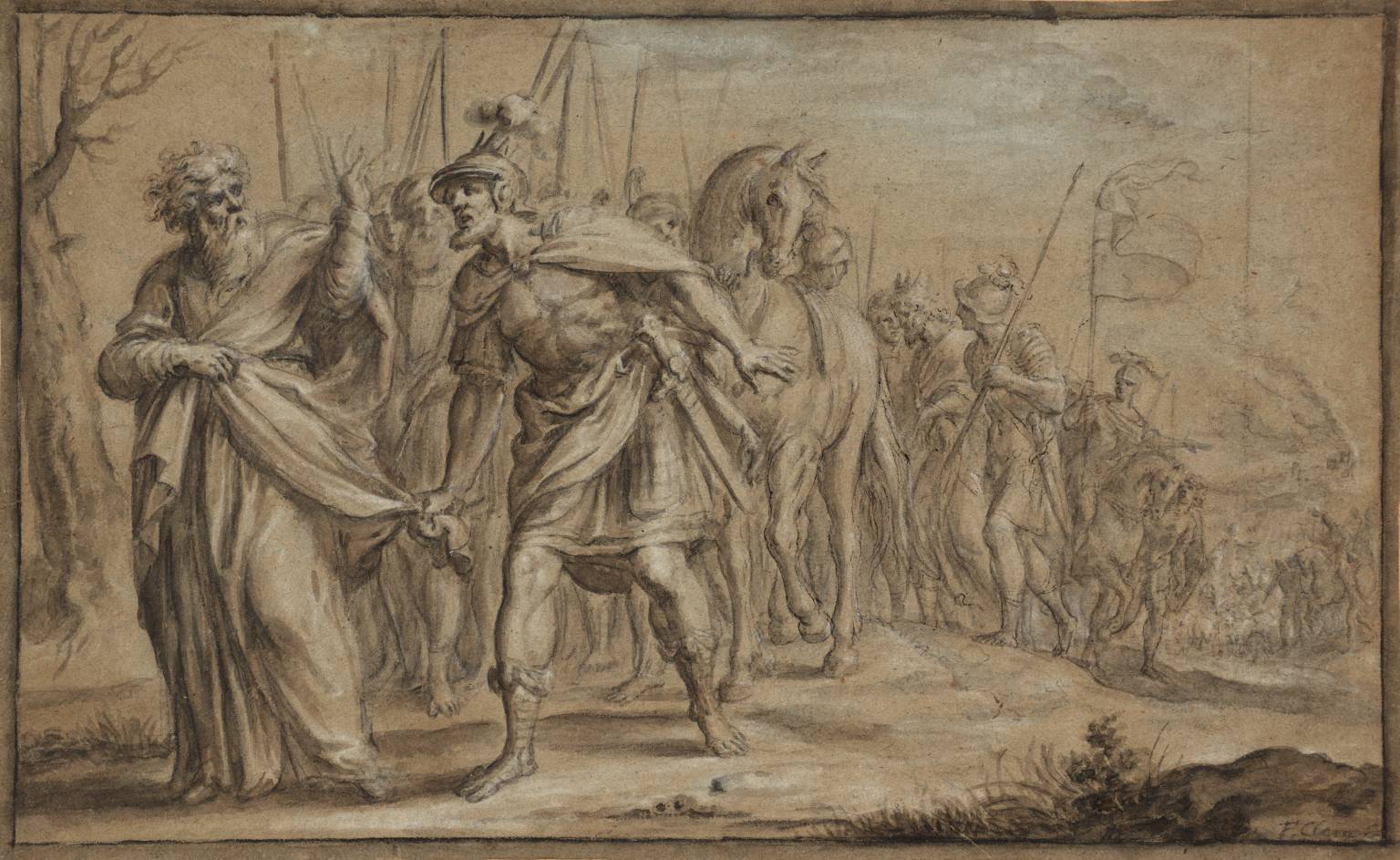Monday, January 17, 2022 (today’s lectionary)
Memorial of St. Anthony, Abbott
Soak up that new wine, there’s plenty for us all
Although you were once small in your own eyes, are you not now the leader of the tribes of Israel?
Saul might have been a tall, strong man, but he had trouble seeing himself that way. This made it difficult for him to be still and know that he could trust God’s instructions. God spoke to Samuel, and Samuel relayed his words to Saul, but from there it turned into a game of telephone. Saul gave different orders to his generals. When things went wrong he sought advice elsewhere, and even when everything went well, as in this case when he destroyed the Amalekites, he didn’t quite finish the job. And in doing it his way, he took advantage.
The result was that, over the twelve or twenty years of his kingship, Saul did not grow in confidence. He became afraid to look in the mirror. Eventually he became afraid of his own people, thinking they hated him when they did not, or looked down on him when they did not.
Saul failed to learn the lesson of obedience.
Obedience is better than sacrifice, and submission better than the fat of rams.
Samuel didn’t let up on Saul, and eventually Saul became afraid even to turn to God. But how could he receive all that God had for him in the way of forgiveness and new direction, if he couldn’t pray?
A sin like divination is rebellion, and presumption is the crime of idolatry. Because you have rejected the command of the Lord, he, too, has rejected you as ruler.
Saul, in his insecurity, over-reached.

“One happy thing is every happy thing.” Thus ends Stravinsky’s The Soldier’s Tale, and most post-war reviewers in 1918 called that conclusion “trite, schoolmasterly, sophomoric, sententious.” Why? Saul could have lived a happy life and led his people far more wisely with that simple philosophy. In First Things, Ephraim Radner talks about his own gradual recognition of what those seven words entails.
As a teenager (forty years ago he played the fiddle in the play), perhaps I groped vaguely at the moral’s truth, and thus felt its power from afar. At sixty-four, I have now encountered it full on. The simple good that we are given here and now is all that we need and can ever dare to receive with gratitude. And the drive to accumulate more and more sweeps us into the arms of the Enemy.
Jesus put it another way, with a twist. While as Radner says, The Soldier’s Tale “defends the normal, with its limits and profundity,” Jesus invites us to go beyond and embrace something new. Jesus calls it “the Kingdom of heaven,” which we must enter in repentance:
No one pours new wine into old wineskins. Otherwise, the wine will burst the skins, and both the wine and the skins are ruined. Rather, new wine is poured into fresh wineskins.
Repentance … usually I think of confessing sin, turning back and away, perhaps fasting to make the effort stronger. But:
Can wedding guests fast while the bridegroom is with them?
Casting away the old wineskin is followed by replacing it with new.
Turn away, yes, but turn away from my own insecurity and fear of failure. Turn away from the idolatry of presumption, as Samuel called it. Turn away from the tempting sorrows of Saul, small in his own eyes, and claim the joys of this new life. I realize Jesus’ presence, and so I rejoice, celebrate, and feast, know the gratitude and praise that comes with new wine.
“One happy thing is every happy thing.”
He that offers praise as a sacrifice glorifies me, and to him that goes the right way I will show the salvation of God.
(1 Samuel 15, Psalm 50, Hebrews 4, Mark 2)
(posted at www.davesandel.net)
#